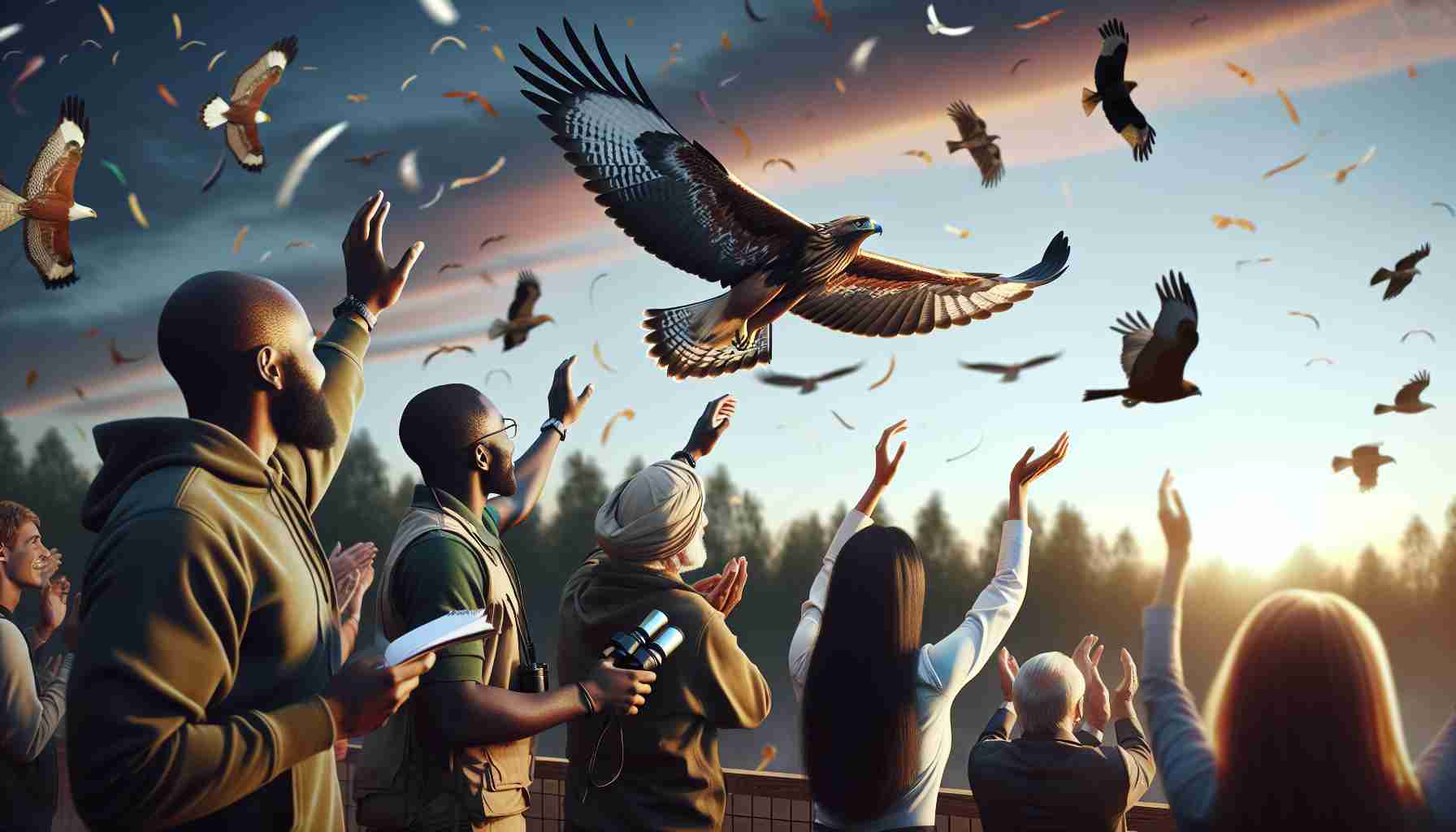In the remarkable landscape of wildlife preservation, few endeavors shine as brightly as the protection of birds of prey. Renowned conservationist Peter Gros, a central figure in this realm, has long been dedicated to safeguarding these majestic avian species. As the co-host of Mutual of Omaha’s Wild Kingdom, Gros has been at the forefront of conservation efforts since 1985, and the program continues to honor his legacy with a new season titled “Protecting the Wild.”
In anticipation of an upcoming episode that emphasizes the challenges faced by the harpy eagle, Gros reflects on his extensive experience in bird of prey conservation. Notably, during his tenure at Marine World/Africa USA, he initiated a vital rehabilitation program that focused on rescuing and rehabilitating injured raptors. This initiative was imperative not only for the restoration of these birds to their natural habitats but also for educating the public about the pressing issues affecting their populations.
Today, Gros is actively engaged in the conservation of the harpy eagle. His recent expedition to Florida has deepened his understanding of the species’ threats and the innovative measures in place to protect it. A highlight was his encounter with a harpy eagle, a moment that illustrated the bond between humans and wildlife.
Overall, efforts in raptor conservation have evolved significantly, with legislation and collaborative strategies paving the way for the recovery of various species. As communities unite to protect these incredible birds, Gros remains hopeful that future generations will continue this essential work.
Essential Tips and Interesting Facts for Bird of Prey Conservation
When it comes to wildlife conservation, particularly in the realm of raptors, there are countless ways individuals can contribute to the protection of these incredible birds. Here are some tips, life hacks, and fascinating facts that can enhance your efforts to support bird of prey conservation.
1. Educate Yourself and Others
Understanding the key facts about birds of prey has a significant impact on their conservation. Did you know that raptors have unique adaptations such as excellent vision and powerful talons that help them hunt? Share this knowledge through workshops or community events to raise awareness about their importance in our ecosystems.
2. Support Local Conservation Efforts
Engage with local wildlife organizations focused on raptors. Participate in clean-up days, volunteer for educational programs, or even assist in rehabilitation efforts. Check local organizations for their initiatives and see how you can join in their projects.
3. Create a Bird-Friendly Environment
You can make your backyard more inviting to birds of prey! Install birdhouses, or provide natural perches and cover. Reducing pesticide use will also help maintain a healthy food supply for these birds. Healthy ecosystems support diverse wildlife.
4. Practice Responsible Birdwatching
If you enjoy birdwatching, maintain a respectful distance to avoid disturbing their natural behavior. Use binoculars and telephoto lenses to observe raptors without intruding on their space. Remember to follow local guidelines to ensure both your safety and the birds’ protection.
5. Participate in Citizen Science
Join community science projects that track raptor populations and health. By reporting sightings and volunteering for data collection, you contribute valuable information that helps conservationists make informed decisions. Many organizations provide apps or platforms for easy reporting.
Interesting Facts About Birds of Prey:
– Raptors, such as eagles and owls, have specialized feathers that allow for silent flight, which is essential for hunting.
– The harpy eagle is one of the largest and most powerful birds of prey in the world, primarily found in tropical rainforests.
– Birds of prey play a critical role in maintaining the balance of their ecosystems by controlling populations of rodents and insects.
For more insights and opportunities on wildlife conservation, visit Audubon to explore various programs and initiatives designed to protect birds and their habitats.
In summary, be proactive in learning about bird of prey conservation and share this passion with others. By implementing these tips and embracing the fascinating aspects of raptor biology, you can make a significant contribution to the safeguarding of these magnificent creatures for future generations.
